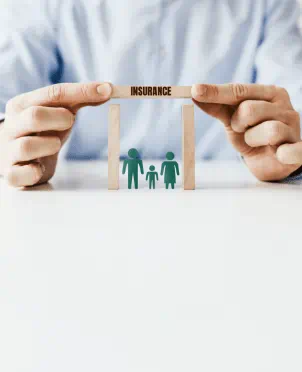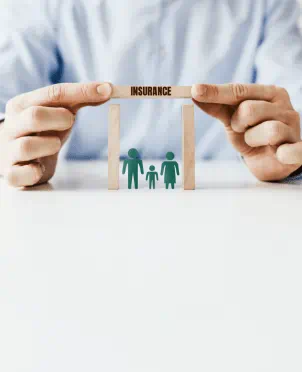- PERSONAL
- BUSINESS
- CORPORATES
-
ADVISORS
-
Investments
- MUTUAL FUNDS ADVISORS
- STOCKS & SECURITIES ADVISORS
-
Advisor
- SELECT ADVISOR
- CAREERS
Unlock Financial Tools, Investment Insights, And Expert Guidance“ All In One Convenient App !
Visit Our ABCD PageFind customised home loan solutions for your unique needs
Find a better interest rate for your existing home loan
Get a loan on your existing home loan to meet your needs
Turn your assets into a financial ally




Meet all your dreams and needs with a collateral-free Personal Loan
Make loan repayment flexible and hassle-free with Flexi Loans
Get quick funds with Aditya Birla Capital Instant Personal Loan
Enjoy affordable repayments and a flexible tenure with Aditya Birla Capital
Check your Aditya Birla Capital Personal Loan eligibility
Enjoy low personal loan interest rates for affordable repayments


Are you eligible for a Personal Loan? Find out now!
Calculate Now
Meet your financial needs with a collateral-free loan
Get loans for all your business needs at attractive rates

Bring security and peace to life’s unpredictability
Get a guaranteed regular pension plus lump sum on plan maturity
Get a guaranteed regular pension plus lump sum on plan maturity
Get the benefits of insurance & wealth creation in one convenient plan

Find out how much life insurance you need with our Human Life calculator
Calculate Now

Protect your vision with comprehensive eye insurance.
Protect your smile with comprehensive dental insurance and coverage plans tailored for you.
Get financial support with our hospital cash insurance for unexpected medical expenses.
 Mental Health & Nutrition Insurance
Mental Health & Nutrition Insurance
Get the best mental health insurance online with ABCD Aditya Birla Capital today!
Secure your future with our affordable personal accident insurance plans.


Diversify your portfolio and reduce risk with Debt Funds
Invest smartly in Equity Funds to aim for higher returns
Diversify your portfolio and reduce your risk with a mix of equity and debt
Goal-oriented fund with a lock-in period to create a corpus for retirement
Secure your child’s financial future with solutions-oriented children’s funds
Unlock a smart, hassle-free way to invest in various assets
Choose the smart way to diversify risks and grow investments
Follow the benchmark of smart investors to grow your wealth
Calculate wealth creation through lumpsum investment in Mutual Funds
Calculate Now

Utility bill payments made easy with BillPay
Shopping grocery, lifestyle or paying bills, pay anything with our payment solutions
Sending money to individuals and businesses made easy and instant
Pay on call in 3 simple steps by providing your UPI ID


 Debt Funds
Debt Funds
Diversify your portfolio and reduce risk with Debt Funds
 Equity Funds
Equity Funds
The smart way to invest in the stock market
 ETF Funds
ETF Funds
Invest easily, diversify wisely, and grow your wealth
 Hybrid Funds
Hybrid Funds
Strike the perfect balance between growth and stability
 Fund Of Funds
Fund Of Funds
Maximise your returns with Fund of Funds
 Index Funds
Index Funds
Follow the benchmark of smart investors to grow your wealth


Mauris Porta Arcu Id Tortor Pulvinar Cursus. Mattis, Diam Id.
CALCULATE NOW
Mauris Porta Arcu Id Tortor Pulvinar Cursus. Mattis

Mauris Porta Arcu Id Tortor Pulvinar Cursus. Mattis

Mauris Porta Arcu Id Tortor Pulvinar Cursus. Mattis
Check your credit score and get tips on how to improve it
Healthy living made easy with ABCD’s Digital Health Evaluation
Bring your assets and liabilities under one platform
Manage your money effectively with Spend Track.
Money management made easy
Understanding direct and indirect taxes
Know how to plan retirement well
Insurance and it's aspects for laymen
Investments and their jargon - simplified
Know all about loans and their management
Check your credit score and get tips on how to improve it
Healthy living made easy with ABCD’s Digital Health Evaluation
Bring your assets and liabilities under one platform
Manage your money effectively with Spend Track.
 Personal Loan EMI Calculator
Personal Loan EMI Calculator
Estimate your monthly loan repayments with Personal Loan EMI Calculator
 Home Loan Eligibility Calculator
Home Loan Eligibility Calculator
Calculate the expected EMI of your loan for easier repayments
 BMI Calculator
BMI Calculator
It measure your leanness or obesity basis your height and the weight.
 Income Tax Calculator
Income Tax Calculator
Calculate the tax payable by you based on your income
 SIP Calculator
SIP Calculator
Estimate the returns you can earn with your SIP investments
 SWP Calculator
SWP Calculator
Calculate the Life Insurance cover you need to secure your family’s future
 Life Insurance
Life Insurance
 Health Insurance
Health Insurance
 Mutual Fund
Mutual Fund
 Home Finance
Home Finance
 Personal Finance
Personal Finance
 Stocks & Securities
Stocks & Securities
Flexible organisations and the workplace of the future




 PlayStore
PlayStore






 Insurances
Insurances  INVESTMENTS
INVESTMENTS  LOANS
LOANS  PAYMENTS
PAYMENTS  QUICK SERVICES
QUICK SERVICES 
 PLAY STORE
PLAY STORE APPSTORE
APPSTORE




























